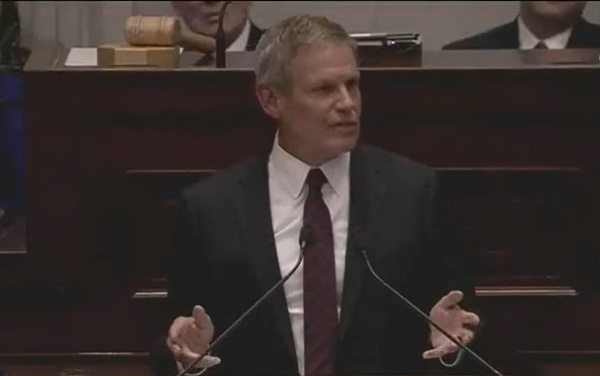Alberta
Alberta’s Covid-19 Report clearly shows the way

From the Frontier Centre for Public Policy
By Lee Harding
The Manning Commission showed that Alberta actually had a very bad process for making critical decisions. Specifically, a court case showed that the PHO checked in with cabinet decisions, but the cabinet denied that the decisions were up to them. This was not even legal
Alberta’s Public Health Emergencies Governance Review Panel has made 90 sound recommendations which that, frankly, all provinces should enact.
The panel chaired by Preston Manning examined whether the province needed better structures and legislation to handle public emergencies. Of course, Alberta needed stronger legislation to handle the COVID_19 pandemic.
The report’s strongest conclusion is that the premier, cabinet, and key ministers “have the ultimate authority and responsibility…[t]o make decisions on the emergency response measures adopted, accounting for key values, priorities and tradeoffs.”
The previous provincial Emergency Management Act left decisions with the provincial health officer (PHO). The Manning Commission showed that Alberta actually had a very bad process for making critical decisions. Specifically, a court case showed that the PHO checked in with cabinet decisions, but the cabinet denied that the decisions were up to them. This was not even legal, as the law said the PHO had final authority in emergency situations
Some critics warned that putting emergency management decisions in the hands of elected officials could leave them swayed by politics. This is a very weak argument because the same could be legitimately said for everything an elected government does.
The government responses to the pandemic led to an eight per cent contraction in the Alberta economy. This $24 billion burden had its own economic and health consequences. Unfortunately, a myopic focus on the virus by the health bureaucrats disregarded the serious toll that isolation, addiction, and suicide had on citizens.
An unfortunate dogma emerged during the COVID-19 pandemic, that social distancing, lockdowns, and rushed vaccines all deserved to be fully supported, while, at the same time, certain inexpensive generic drugs should not be used. At this time, a considerable amount of research shows that there is a defensible contrary perspective, which is a point that the Alberta report’s sharpest critics don’t seem to acknowledge.
In fact, the report wisely advises “‘[t]hat a clear and conscious decision be made by elected officials as to the scope of the scientific advice to be sought and that this decision not be left entirely to the subject-matter agency or department, given that it may have a narrower perspective than that actually required.”
To this end, “whatever scientific advisory committees, advisors and contractors are assembled to support the response be broadly based, multidisciplinary in nature, and appropriately balanced from both inside and outside government.”
The recommendation to consult widely and not to become “stuck” in political paradigms that may not work seems irrefutably sensible. Unfortunately, an openness to “alternative perspectives” has been unduly bashed.
The report emphasized that the education of school children must continue despite an emergency. Most countries avoided the long months of school closures common to Alberta and, indeed, common to other provinces. The report warns that the “compromised learning and reduced socialization…will be felt well into the future by both Alberta and Canada, across all dimensions of society, economy and country.”
Correctly the report recommends that n the future schools must remain open “except under the most exceptional circumstances,” The authors said Alberta law should enshrine not just a right that children have to education, but the province has a duty to offer it, with stiff penalties for the dereliction of such duties. The report argues that in-person learning is preferred to online learning, but improved access to technology for on-line learning was also advised.
The panel also called for helping students who fell by the wayside during school closures so that they can “make up for learning loss.” As well, the panel also called for a system-wide “intensification of punctuality, behavioural and academic performance standards.”
The panel also called for changes to the Employment Standards Code to “disallow permanent dismissals of non-compliant employees during a temporary public emergency.” Those fired for not taking the vaccine can only welcome this recommendation. The report also says that the Health Professions Act needs its “standard of practice” amended to include “recognition and protection of the rights of members to freedom of expression.” Basic measures to bolster health care will only come about when experts can freely express and defend their concerns in open debates.
The panel also recommended that the Alberta Bill of Rights be revised and strengthened. Guarantees of personal and professional freedom and “protection against discrimination on the basis of opinion, disability and medical status or history” were among the most important revisions that were suggested.
Obviously, the COVID-19 pandemic has been a painful memory for both policy makers and citizens, but the thoughtful analysis offered by the Manning panel is necessary so that Alberta is ready for the next crisis. Hopefully, all provincial governments, and indeed the federal government, will look carefully at the Alberta report and they will prepare accordingly. The next crisis, whatever it may be, could unfortunately be soon be upon us.
Lee Harding is Research Fellow for the Frontier Centre for Public Policy.
Alberta
Canadian Christian chiropractor fights ‘illegal’ $65,000 fine for refusing to wear mask

From LifeSiteNews
Dr. Curtis Wall went against the College of Chiropractors of Alberta’s COVID mask mandate in 2020 and the organization has been pursuing disciplinary action ever since.
The legal team for Dr. Curtis Wall, a Canadian chiropractor who was recently fined $65,000 by his medical college for not wearing a mask in 2020 despite the fact public health orders last year were nullified by a court, has vowed to fight the “illegal” fine, saying that Wall was targeted because he is a “Christian man of integrity and principle.”
“Dr. Wall should not pay any fines or costs when the public health orders he was charged with not following have been declared void by the courts,” said Wall’s legal team, Liberty Coalition Canada (LCC), in a press release.
“He is a Christian man of integrity and principle — attributes that make him a target for government overreach in the era of COVID.”
Wall was practicing in Calgary in 2020 when the COVID crisis was gearing up, went against Alberta’s public health orders and chose not to wear a mask during patient visits. Many of his patients also decided to not wear masks during their visits, which quickly drew the ire of College of Chiropractors of Alberta, which had mandated that all chiropractors wear masks.
Wall, who has been seeing patients for the last 25 years with a pristine record, was then targeted by the College, which tried to strip him of his license to practice. The College was unable to strip Wall of his license and he continued to practice, sans mask in 2021 and 2022.
In 2021, the College had brought against Wall, as per the LCC, “a long list of charges of unprofessional conduct against Dr. Wall, most of which related to Dr. Wall not wearing a mask while treating patients and permitting his patients to not wear a mask.”
Wall was then brought before a disciplinary hearing Tribunal to mediate his case, which went well into 2022, and had placed a publication ban on all “identities of all witnesses,” including Wall’s.
James Kitchen, Wall’s lawyer from the LCC, was successful in getting the publication ban lifted, as the LCC noted due to the College “wishing to avoid likely defeat before the courts” regarding keeping the ban in place.
Fined chiropractor says college did not recognize his ‘Christian convictions’
In 2023, the Tribunal ruled against Wall entirely and in favor of the College.
The Tribunal’s decision noted the LCC is “riddled with errors of fact and law and is so poorly decided it is an embarrassment to the chiropractic profession.”
Wall spoke with LifeSiteNews and observed that while in his point of view he does not feel his fines and costs imposed on him by the college “are a direct result of my Christian faith,” he did note that the tribunal did “not recognize my honest Christian convictions as a valid reason for my not wearing a mask.”
“They put placed no merit in the argument that as a Christian I believe I am created in the image of God,” Wall said.
“My face is an expression of Him. Having man arbitrarily mandate that I cover my face is an affront to that expression and signifies that I am living in the fear of man, not by faith. So, in all, I don’t feel directly persecuted as a Christian, but certainly indirectly.”
Wall told LifeSiteNews that in his opinion the college could have “handled this issue much differently.”
“There must always be room for exceptions to a rule. I did present a doctor’s note to verify my inability to wear a mask. They did not place any weight on that note. They blamed me for ‘self-diagnosing’ my problem,” Wall said.
“Number one, I’m a doctor. I think eight years of schooling has given me some wisdom to diagnose my own signs and symptoms. Number two, if someone eats a peanut and their throat swells shut, can they not diagnose themselves and stay away from nuts? It’s not a problem to self-diagnose.”
Wall said that despite his legal team presenting four expert witnesses to demonstrate “the obvious inadequacy and lack of efficacy in mask-wearing, not to mention the harms as well,” the college “did not cite the record once in their verdict.”
He noted that “common sense, science and past and present studies overwhelmingly demonstrate” the lack of efficacy regarding mask-wearing.
The LCC noted that although both Kitchen and Wall hoped for an “unbiased decision from the tribunal,” they knew it was more “likely the tribunal members would lack the courage to oppose the government’s COVID narrative by accepting the scientific evidence masks are utterly ineffective at preventing the transmission of COVID and harmful to wearers.”
“Nonetheless, it is shocking the lengths the tribunal went to dismiss the evidence of Dr. Wall, three of his patients, and his four expert witnesses while blithely accepting all the evidence of the College.”
Wall’s charges laid despite a recent court ruling nullifying all Alberta COVID health orders
According to LCC, the charges brought against Wall show that the College of Chiropractors of Alberta has “ignored the law” relating to non-criminal COVID-era charges handed out in the province.
As reported by LifeSiteNews before, last year a judge from Alberta ruled that politicians violated the province’s health act by making decisions regarding COVID mandates without authorization. This ruling came from the Alberta’s Court of Kings Bench’s Ingram v. Alberta decision, which put into doubt all cases involving those facing non-criminal COVID-related charges in the province. In effect, the ruling struck down and nullified all health orders issued by Dr. Deena Hinshaw, Alberta’s former chief medical officer of health.
As a result, multiple people facing charges, such as Dr. Michal Princ, pizzeria owner Jesse Johnson, café owner Chris Scott, and Alberta pastors James Coates, Tim Stephens, and Artur Pawlowski who were jailed for keeping churches open under then-Premier Jason Kenney, have had COVID charges against them dropped due to the court ruling.
The Alberta’s Court of Kings Bench’s Ingram v. Alberta decision put into doubt all cases involving those facing non-criminal COVID-related charges in the province.
As a result of the court ruling, Alberta Crown Prosecutions Service (ACPS) said Albertans facing COVID-related charges will likely not be convicted but instead have their charges stayed.
However, last year, the College, and of important note after the Ingram ruling, ordered Wall to pay $65,000 in fines and costs “under threat of immediately losing his license to practice if he does not pay,” the LCC said.
Chiropractor’s lawyer to fight fine tooth and nail
According to the LCC, the College’s new complaints director said she will enforce the tribunal’s court-defying order and mandate Wall pay the $65,000.
Because of this, Kitchen submitted an application to the College “to prevent this injustice” against Wall, the LCC noted.
“The Application will be heard on June 21. It will be heard virtually and is open to public, although the College has erected a number of barriers to people attending its hearings. For one, people must register with the hearings director and must do so many days in advance,” he told LifeSiteNews.
“The Tribunal elected to ignore the Ingram decision despite issuing its decision over two weeks after Ingram was released by the Court.”
Kitchen noted that the Tribunal had a lawyer advising it who was being paid some $700 an hour. He told LifeSiteNews that “Tribunals can do whatever they want and often do.”
“Only if the affected person takes further legal action can they hold the Tribunals accountable. And even then, that’s very difficult because the first appeals are to the councils of the Colleges, which almost always rubber stamp whatever the Tribunals decide. Real accountability isn’t had until the impugned professional is able to reach the Court of Appeal, which of course takes years and an enormous amount of funding for lawyer fees,” Kitchen said.
Kitchen is working Wall’s case at discounted rates and noted that high legal costs in such cases dealing with tribunals, who can drag things on for years, to him appear to be a tactic the Colleges count on for “avoiding accountability.”
The LCC estimates the College, which is funded through payments from all chiropractors, paid some $600,000 in legal fees to fight Wall.
“LCC asks supporters to donate toward Dr. Wall’s case so he and Mr. Kitchen can hold the College of Chiropractors of Alberta accountable and bring an end to the unjust persecution of Dr. Curtis Wall. Liberty Coalition Canada is assisting Dr. Wall with his legal expenses through the Legal Defense Fund.”
Kenney quit after losing the confidence of his United Conservative Party (UCP) members for backtracking on his promise to not impose a COVID vaccine passport. Under Kenney, thousands of businesses, notably restaurants and small shops, were negatively impacted by severe COVID restrictions, mostly in 2020-21, that forced them to close their doors for a time. Many never reopened. At the same time, as in the rest of Canada, big box stores were allowed to operate unimpeded.
Under Kenney, thousands of nurses, doctors, healthcare and government workers lost their jobs for choosing to not get the jabs, leading Premier Danielle Smith to say – only minutes after being sworn in – that over the past year the “unvaccinated” were the “most discriminated against” people in her lifetime.
Recently, LifeSiteNews reported on how Alberta-based Rath & Company is in the process of putting together a class-action lawsuit against the Alberta government on behalf of many business owners in the province who faced massive losses or permanent closures from what it says were “illegal” COVID public health orders enacted by provincial officials.
Alberta
Game changer: Trans Mountain pipeline expansion complete and starting to flow Canada’s oil to the world
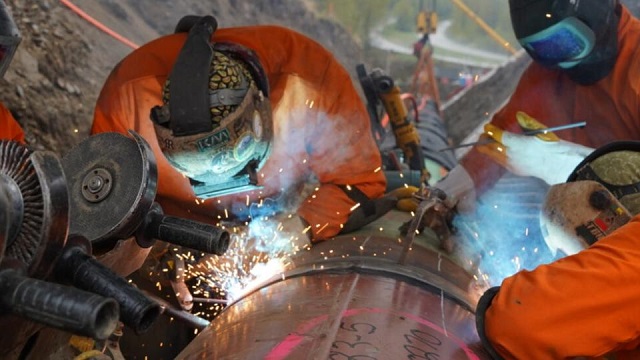
Workers complete the “golden weld” of the Trans Mountain pipeline expansion on April 11, 2024 in the Fraser Valley between Hope and Chilliwack, B.C. The project saw mechanical completion on April 30, 2024. Photo courtesy Trans Mountain Corporation
From the Canadian Energy Centre
By Will Gibson
‘We’re going to be moving into a market where buyers are going to be competing to buy Canadian oil’
It is a game changer for Canada that will have ripple effects around the world.
The Trans Mountain pipeline expansion is now complete. And for the first time, global customers can access large volumes of Canadian oil, with the benefits flowing to Canada’s economy and Indigenous communities.
“We’re going to be moving into a market where buyers are going to be competing to buy Canadian oil,” BMO Capital Markets director Randy Ollenberger said recently, adding this is expected to result in a better price for Canadian oil relative to other global benchmarks.
The long-awaited expansion nearly triples capacity on the Trans Mountain system from Edmonton to the West Coast to approximately 890,000 barrels per day. Customers for the first shipments include refiners in China, California and India, according to media reports.
Shippers include all six members of the Pathways Alliance, a group of companies representing 95 per cent of oil sands production that together plan to reduce emissions from operations by 22 megatonnes by 2030 on the way to net zero by 2050.
The first tanker shipment from Trans Mountain’s expanded Westridge Marine Terminal is expected later in May.
 Photo courtesy Trans Mountain Corporation
Photo courtesy Trans Mountain Corporation
The new capacity on the Trans Mountain system comes as demand for Canadian oil from markets outside the United States is on the rise.
According to the Canada Energy Regulator, exports to destinations beyond the U.S. have averaged a record 267,000 barrels per day so far this year, up from about 130,000 barrels per day in 2020 and 33,000 barrels per day in 2017.
“Oil demand globally continues to go up,” said Phil Skolnick, New York-based oil market analyst with Eight Capital.
“Both India and China are looking to add millions of barrels a day of refining capacity through 2030.”
In India, refining demand will increase mainly for so-called medium and heavy oil like what is produced in Canada, he said.
“That’s where TMX is the opportunity for Canada, because that’s the route to get to India.”
Led by India and China, oil demand in the Asia-Pacific region is projected to increase from 36 million barrels per day in 2022 to 52 million barrels per day in 2050, according to the U.S. Energy Information Administration.
More oil coming from Canada will shake up markets for similar world oil streams including from Russia, Ecuador, and Iraq, according to analysts with Rystad Energy and Argus Media.
Expanded exports are expected to improve pricing for Canadian heavy oil, which “have been depressed for many years” in part due to pipeline shortages, according to TD Economics.
 Photo courtesy Trans Mountain Corporation
Photo courtesy Trans Mountain Corporation
In recent years, the price for oil benchmark Western Canadian Select (WCS) has hovered between $18-$20 lower than West Texas Intermediate (WTI) “to reflect these hurdles,” analyst Marc Ercolao wrote in March.
“That spread should narrow as a result of the Trans Mountain completion,” he wrote.
“Looking forward, WCS prices could conservatively close the spread by $3–4/barrel later this year, which will incentivize production and support industry profitability.”
Canada’s Parliamentary Budget Office has said that an increase of US$5 per barrel for Canadian heavy oil would add $6 billion to Canada’s economy over the course of one year.
The Trans Mountain Expansion will leave a lasting economic legacy, according to an impact assessment conducted by Ernst & Young in March 2023.
In addition to $4.9 billion in contracts with Indigenous businesses during construction, the project leaves behind more than $650 million in benefit agreements and $1.2 billion in skills training with Indigenous communities.
Ernst & Young found that between 2024 and 2043, the expanded Trans Mountain system will pay $3.7 billion in wages, generate $9.2 billion in GDP, and pay $2.8 billion in government taxes.
-

 Alberta1 day ago
Alberta1 day agoGame changer: Trans Mountain pipeline expansion complete and starting to flow Canada’s oil to the world
-
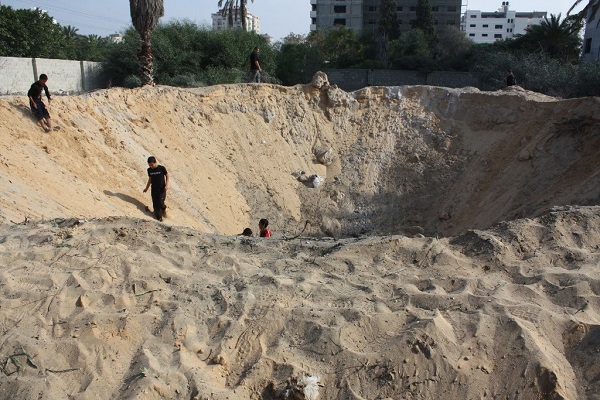
 conflict1 day ago
conflict1 day agoImmigration Experts Warn Possible Biden Plan To Import Gazan Refugees Would Be ‘National Security Disaster’
-
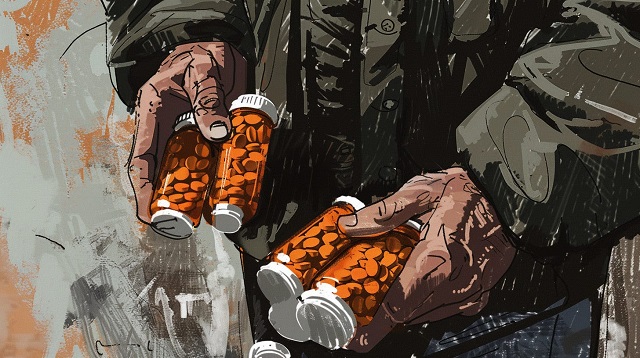
 Addictions1 day ago
Addictions1 day agoCanada’s ‘safer supply’ patients are receiving staggering amounts of narcotics
-

 illegal immigration1 day ago
illegal immigration1 day agoPanama Elects President Vowing Shutdown Of Key Routes To US Used By Over Half A Million Migrants
-

 Brownstone Institute2 days ago
Brownstone Institute2 days agoThe Predictable Wastes of Covid Relief
-
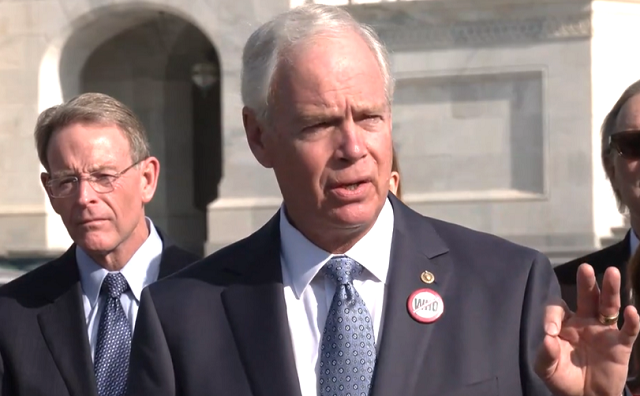
 Great Reset1 day ago
Great Reset1 day agoAll 49 GOP senators call on Biden admin to withdraw support for WHO pandemic treaty
-

 Fraser Institute11 hours ago
Fraser Institute11 hours agoTrudeau and Ford should attach personal fortunes to EV corporate welfare
-

 Bruce Dowbiggin1 day ago
Bruce Dowbiggin1 day agoDo It Once, Shame On You; Do It Twice, Shame On Me





